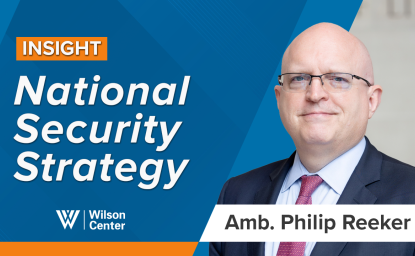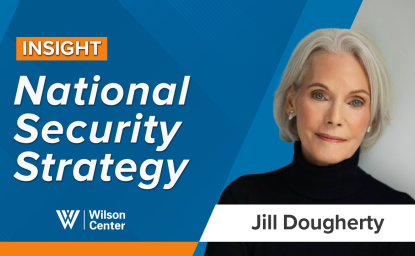Elena Neznamova arrived in Washington last September as a Fulbright-Kennan Institute Research Scholar studying the legal aspects of civic participation. She has since expanded her topic to include other fields and has been studying successful North American civic efforts to bring examples back home to Moscow.
"We in Russia can learn from the North American experience," said Neznamova, who has studied cases in several American cities and in Montreal. She has observed U.S. citizens partnering with local officials and community groups, exchanging information and helping to influence the local government agenda. She has seen ordinary people helping to make local government more accountable and effective.
"I recently went to a citizens association meeting in Washington, D.C.," she said. "Everyone was involved, talking about obstacles to education. The people there also met with the candidate for City Council and asked him many questions."
But in Russia, she said, most people do not seem interested in participating in such forums, which she views as a big problem for democratic development there. She said Russians in rural areas, however, tend to be more involved than urban residents who often indicate they have little time or desire to participate.
"My task is to educate people on how they can use government as an instrument," Neznamova said. In addition to working on a book on developing popular participation in local governance, she teaches a course on municipal law at the Russian Academy of Public Administration in Moscow. Some of her students in this professional training course are, in fact, elected officials. She also has traveled to lecture in other Russian cities including Tula, Smolensk, and Vladimir.
Originally from Kaliningrad, Russia, Neznamova had studied the local government there and has written comparative analyses on other Russian cities. "I want people [across Russia] to understand that voting is not enough," she said. "I try to explain why we need to improve local government and how it's essential to our democracy."
Neznamova said Russians have many opportunities to become involved in civics from attending public hearings and meetings to writing letters to officials. Various obstacles, however, hold some people back. Town meetings might be held at inconvenient times or insufficiently publicized. Then, there's the psychological factor. "People used to be scared of authorities," she said. "We lived in a controlled society for so long, and it's hard to change the mindset."
Still, some simply believe civic participation is a waste of time, deeming it futile to try and improve the situation. "But I think people really can make positive changes in Russia," she said. "For example, students should not just learn from books. We can help them to understand the rules and laws and have them share this information with [their communities]."
She said professors and lecturers in Russia have a duty to encourage civic participation. "They ought to not just explain the laws," she said, but also help citizens use the laws to communicate with officials. "Such participation is essential for Russia's democratic future."


